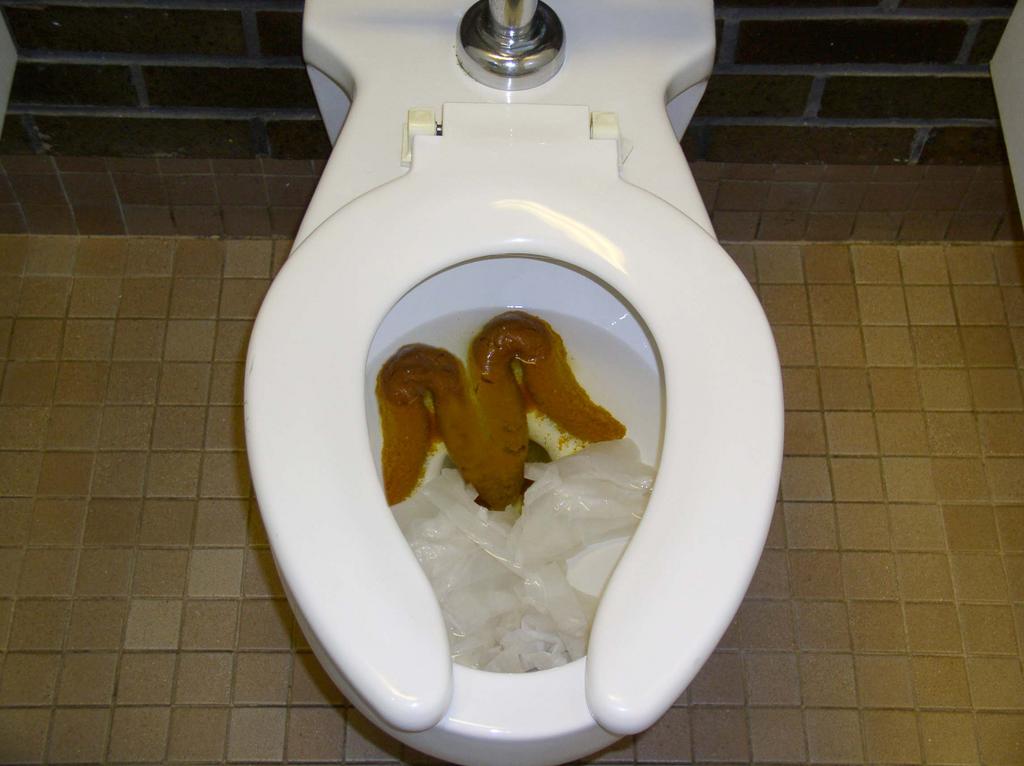Upon me asking someone to show evidence for how much damage vegetable/cooking oil is doing to our environment, and what evidence there is that it leaches out of landfills, I was shown, in jest of course, this picture with the caption, “do you want this in your water, I should hope not.”
Now, there is a distinct difference between the cost and inconvenience of pipes becoming clogged because of fat buildup – a real problem that we heathens who use septic systems in our homes are particularly aware of. But that surely says nothing about how harmful cooking oils are to human health due to contamination of the environment (well, an astute economics student may actually be able to draw a connection, extra credit to those of you who figure it out!). But the general point of course, and I think it can be done with few words, is that “arguing” this as a “proof” that oils cause problems for our water is no different than me posting this picture and asking the same question: “Do you want this in our water?”
Seriously – millions of people defecate into our water every minute of the day. Would it be great if we could separate feces from our drinking water system? Absolutely. Is showing me a picture of it evidence that it is harming us? And by the way, that picture ought to be the environmental standard. As we’ve covered previously here, poor construction of municipal wastewater treatment and sewer systems is perhaps the leading threat to our water supplies – and are very serious problems. Yet here we are using images of Crisco filled pipes as “evidence” in a “debate.” And there’s another economic illustration for students to consider. Why might the waste oil problem be more of a problem in some places than others?
Finally, I know that there are biogas operations in other parts of the world, are any readers familiar with whether this technology is becoming more cost effective and expanded in the US? Sorry for the image above.
UPDATE: I found this entrepreneurial venture to be promising – making biodiesel from sludge in Korea.

Landfill gas operations (and the electrical generation thereof) are seemingly doing well. I don’t know if that counts as biogas, nor am I aware of all the subsidies that may or may not be involved.
That’s a damned impressive grogan. You should work on making the whole alphabet, not just the “M”.
What about urine? Peoples’ cats and dogs and wild animals like the jillions of squirrels and rabbits and raccoons all empty their kidneys regularly onto the surface of the earth and then that noxious substance, which no one would ever drink, percolates down into the aquifer. It’s making me ill just thinking about how my cup of Darjeeling may very well contain molecules that once inhabited the bladder of the neighbor’s Irish Setter.
Thanks for the PSA, WC.
Peter Singer’s answer to the problem is to eliminate the animal kingdom, which in turn will suffocate the plant kingdom by bringing down all that polluting CO2, simultaneously solving the global warming problem and the poverty problem. This is called thinking of the Big Picture. But I digress. Clean water is a big problem worldwide.
Chuck raises a good question. Our Irish setter Meg went in our neighbor’s field across the road. The game went where they pleased, and the cows went in the pasture, in the driveway, and in the barn. We ran the barn cleaner twice a day, and when we could, spread it. That activity is one element of true organic farming. Ever wonder where topsoil comes from, or why they call it soil?